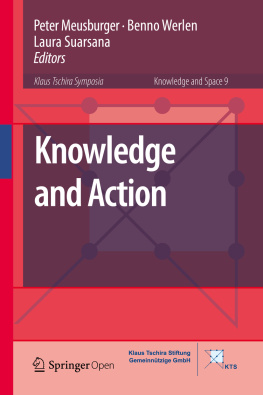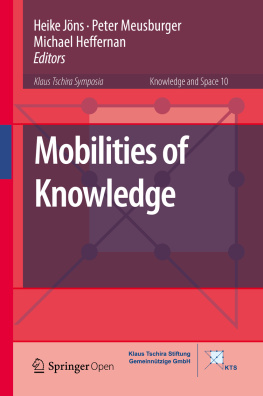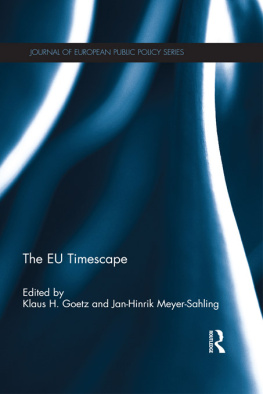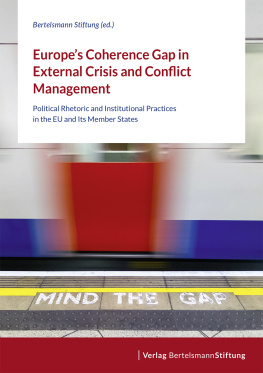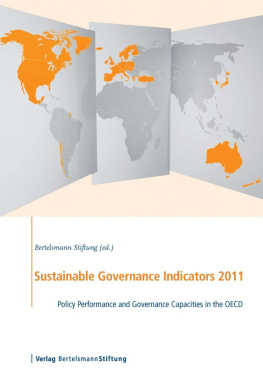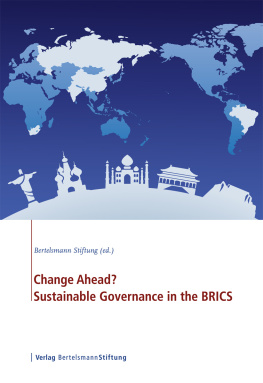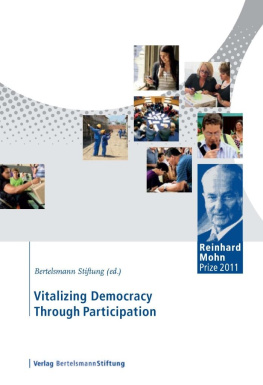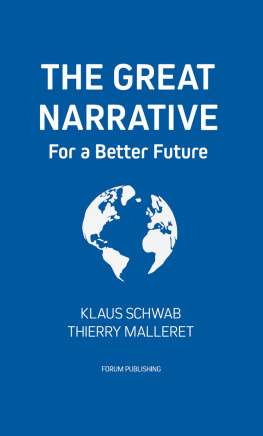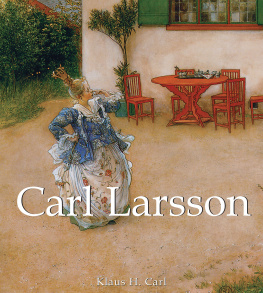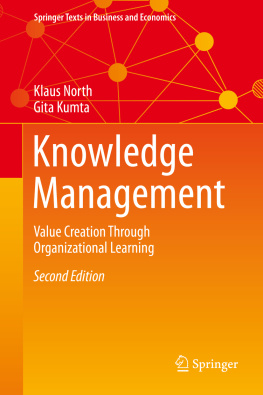1. Knowledge, Action, and Space: An Introduction
is Distinguished Senior Professor of Social and Economic Geography at Heidelberg University. His main research interests are spatial and social disparities of educational achievement; the nexus of knowledge and space; milieus of creativity; relations between knowledge and power; spatial mobility of knowledge; knowledge and economic performance, and related fields. He has published more than 300 academic papers, book chapters and books, and has edited 28 books. Peter Meusburger holds a PhD in geography from Innsbruck University. Between 1983 and 2007 he had the chair of Social and Economic Geography at Heidelberg University. He was visiting scholar in Japan, USA, Hungary, China and Brazil. He served Heidelberg University as Dean and Prorector and was president of the Association of German Geographers between 2001 and 2003.
Open and Contested Research Questions
This book starts from the widely accepted premise that parts of knowledge can be defined as ability, aptitude, or capacity for social action (Stehr, ). Conversely, the spatial dimension plays a key role in the acquisition of knowledge and the implementation of actions. Scholars broadly agree on several points:
Commitment and willful intent alone do not guarantee goal attainment.
Goal-setting (is a given goal desirable and feasible?) and goal-striving (how is the goal being pursued?) are affected by knowledge, skills, experience, and the search for new information.
Experience rests upon former actions in specific settings.
There are manifold relationships between knowledge, power, and action,
Learning processes are embedded in, and to some extent shaped by, the social and material environment.
Settings and locations have a fundamental significance in the search for and access to rare or valuable information, the acquisition and distribution of knowledge, and the successful implementation of actions.
However, the devil is in the details. Relationships between knowledge, action, and space are very complex, some of them are still not fully understood. Some theoretical approaches focus on very simple problems (laboratory experiments) or work with a number of black boxes or questionable premises. Studying the interrelations of knowledge and action, one is apt to raise the following questions: To what extent is knowledge a precondition for action? How much knowledge is necessary for action? To what extent do various types of knowledge influence aspirations, attention, evaluation of situations, search for alternatives, implementation of intentions, decision-making, and problem-solving? How do bidirectional connections between knowledge and action function? How do different representations of knowledge shape action? Are knowledge, skills, experience, and educational achievement useful categories or should they be replaced by broader terms such as reflective system or cognitive capacities? How rational is human behavior? What categories of rationality should be distinguished? Does irrational behavior reflect a lack of appropriate information or is it rather affected by the impulsive system and orientation knowledge? How do deliberative, rational thought and impulsive affect interact and influence action? Why do people occasionally act against their knowledge? What are the social functions of knowledge? In which way can action research profit from interventions of arts and aesthetics?
Some of the most pressing questions in the study of the interrelations of action and space are: Which concepts of space and place are appropriate for analyzing relations between knowledge, action, and space? At what level of aggregation (individual, organization, spatial units))?
These and other questions indicate that relations between knowledge, action, and space are not as simple as some people might assume or as some decision and risk models or traditional rational choice theories suggest. The questions simultaneously underscore the urgent need to explore the interdependencies of knowledge, action, and space from different disciplinary angles, scales of analysis, and ontologies.
The main ambition of this book is to contribute to the clarification of the linkages between knowledge, action and space beyond the well-established models. To redeem this claim it is first necessary to overcome the problematic legacy of homo oeconomicus and traditional rational choice theories and discuss some of the reasons why the spatial dimension was neglected or played only a marginal role in action-centered social theories. If we want to deepen the insights into the relations between action, knowledge and space, then the spatial dimension needs as much theoretical inquiry as the relations between knowledge and action (see the chapters by Werlen (Chap. ) in this volume).
The Neglected Spatial Dimension in Modern Social Theory
Until the first decade of this century, one of the key shortcomings of modern social theory was the nearly total neglect of the spatial dimension of agency (Giddens, ), and social relations. Systematic social theories and action theories in particular have so far widely ignored the spatial dimension of the social. This blindness for the spatial is embedded in more general features of modern social theory that have important implications not only in the field of theory, but consequently also for current societal problem constellations.
According to Giddens (, pp. 205207). This exclusion essentially arrested the development of concepts that could have integrated the spatial dimension and avoided the pitfall of biologistic or materialistic reductionism.
However, when the spatial dimension is taken into account, the word space is often not understood as a theory-dependent term but rather as a given fact. The social sciences commonly refer to notions of geographic space that are considered rather traditional or outdated in current social and cultural geography because they conceptualize space as a material object, a container, or projection plane of material and immaterial social life. Although lack of a systematic theoretical reformulation of space in a more sociotheoretical compatible way is detectable in the work of Pierre Bourdieu as well as in substantial parts of Giddens () theory of structuration, it is primarily found in social and cultural studies after a shift toward acceptance of the spatial dimension occurred. Exponents of this spatial turn claim to have overcome the spatial ignorance identified in their fields and disciplines of study. Their assertion is often unconvincing, however, because space continues to be thought of as a material object or container, with little progress toward a conception of space that is firmly grounded in social theory in a manner compatible with action.
The continuing overemphasis on the container or geographical earth-space in cultural studies and the social sciences leaves the spatial turn incomplete, inflexible, and myopic. These limitations also underlie fields of research and social policies in which it is not apparent at first glance, especially when nature is taken into account. An especially prominent example is the sustainability research based on the World Commission on Environment and Development (

